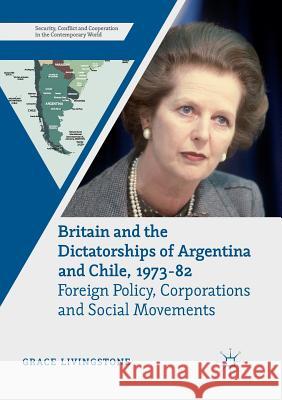Britain and the Dictatorships of Argentina and Chile, 1973-82: Foreign Policy, Corporations and Social Movements » książka
topmenu
Britain and the Dictatorships of Argentina and Chile, 1973-82: Foreign Policy, Corporations and Social Movements
ISBN-13: 9783030086664 / Angielski / Miękka / 2019 / 280 str.
Britain and the Dictatorships of Argentina and Chile, 1973-82: Foreign Policy, Corporations and Social Movements
ISBN-13: 9783030086664 / Angielski / Miękka / 2019 / 280 str.
cena 100,37
(netto: 95,59 VAT: 5%)
Najniższa cena z 30 dni: 96,35
(netto: 95,59 VAT: 5%)
Najniższa cena z 30 dni: 96,35
Termin realizacji zamówienia:
ok. 22 dni roboczych.
ok. 22 dni roboczych.
Darmowa dostawa!
Kategorie BISAC:
Wydawca:
Palgrave MacMillan
Seria wydawnicza:
Język:
Angielski
ISBN-13:
9783030086664
Rok wydania:
2019
Dostępne języki:
Numer serii:
000468546
Ilość stron:
280
Waga:
0.35 kg
Wymiary:
21.01 x 14.81 x 1.55
Oprawa:
Miękka











